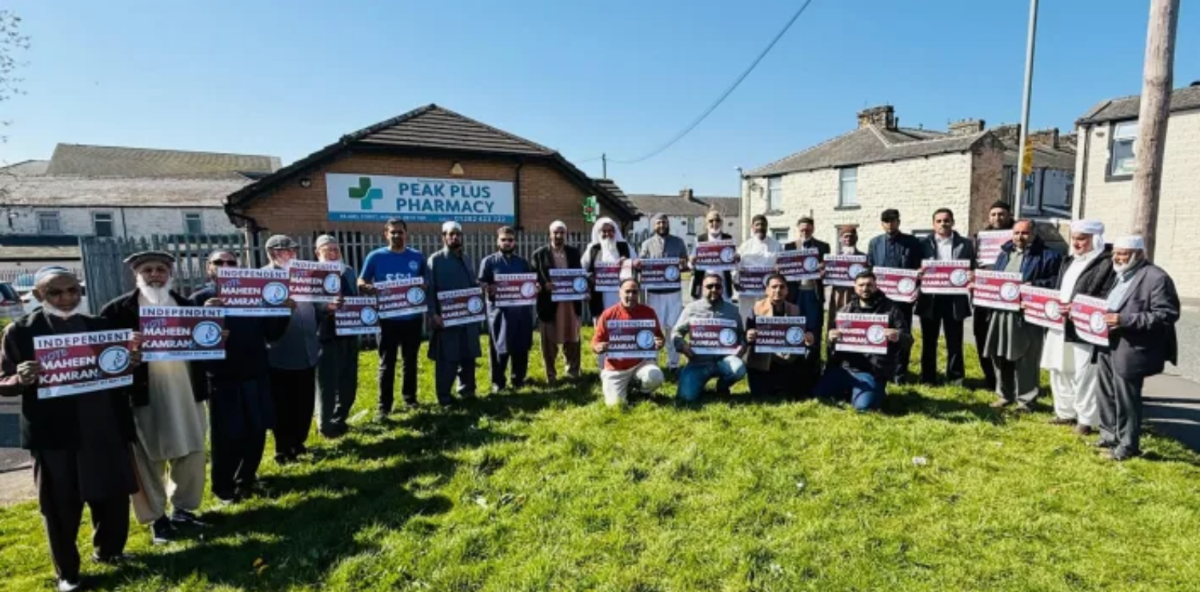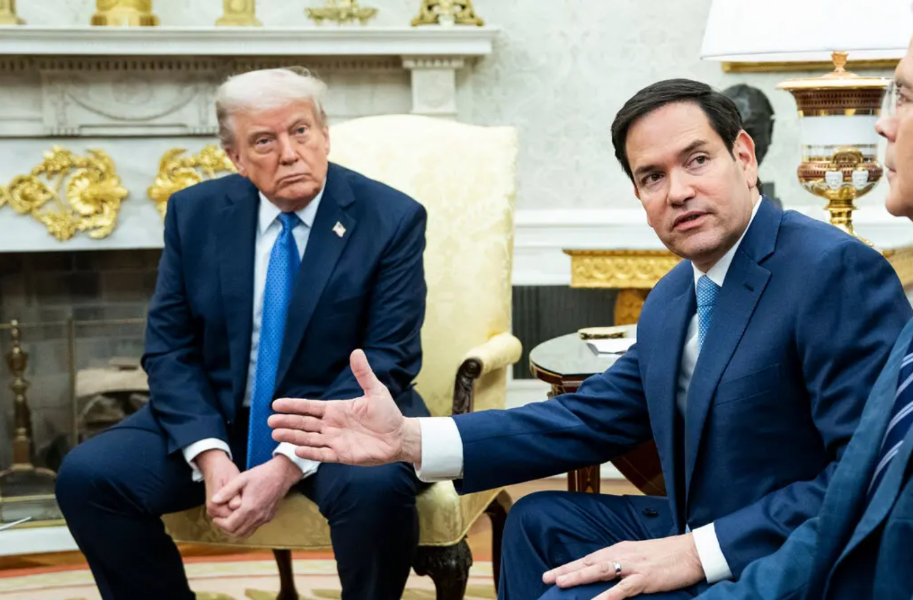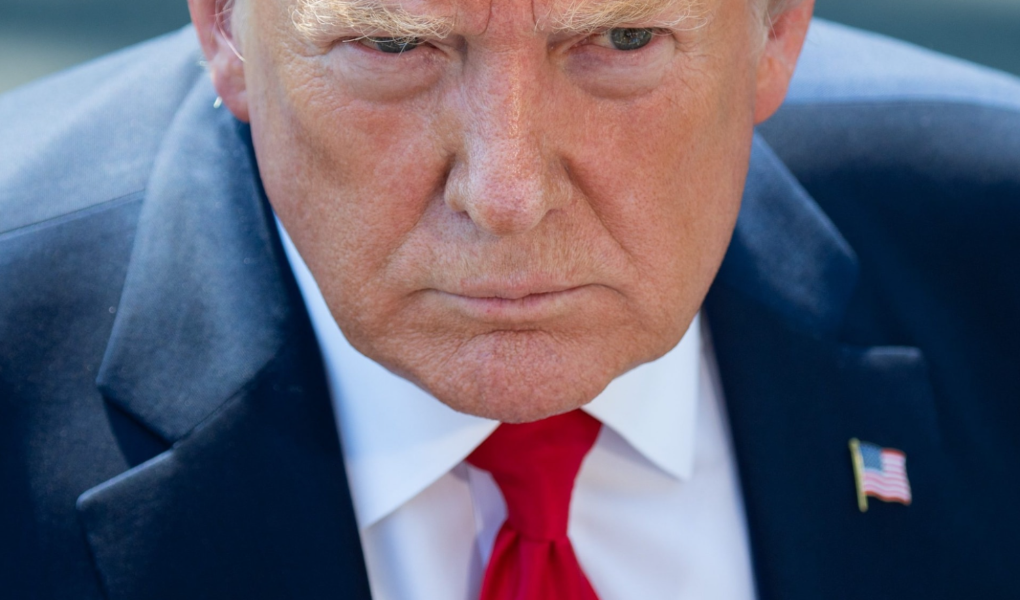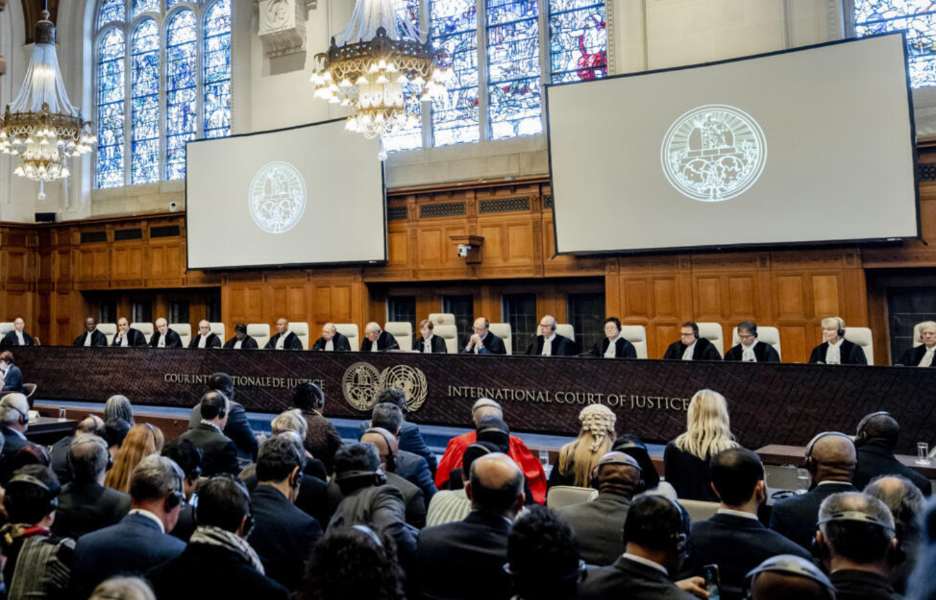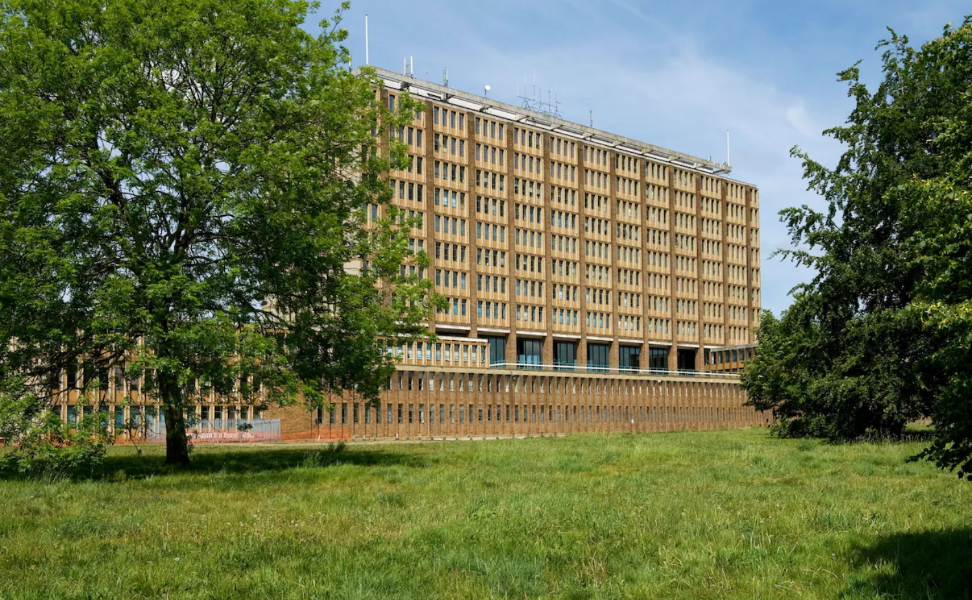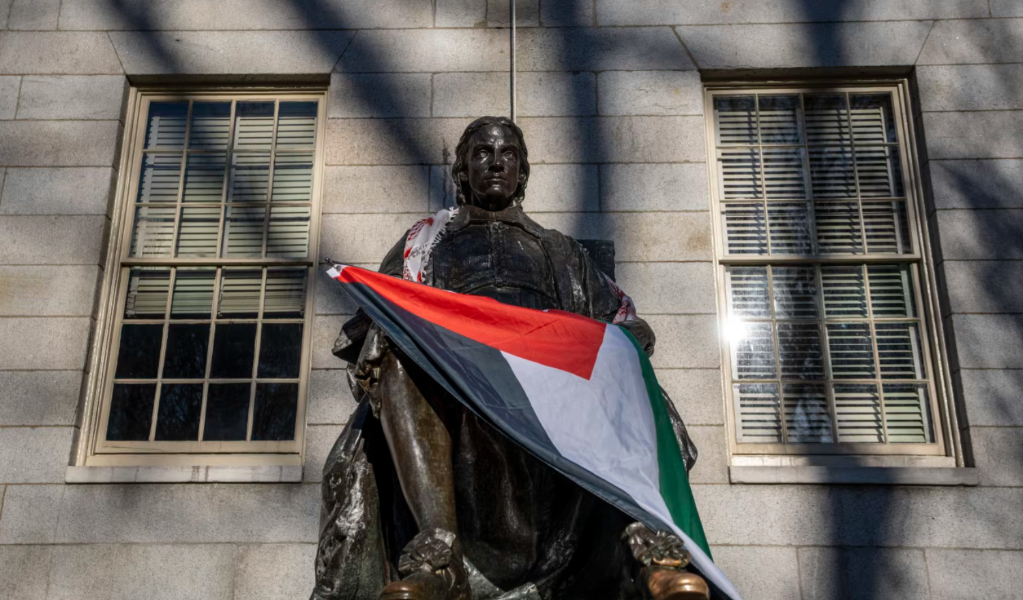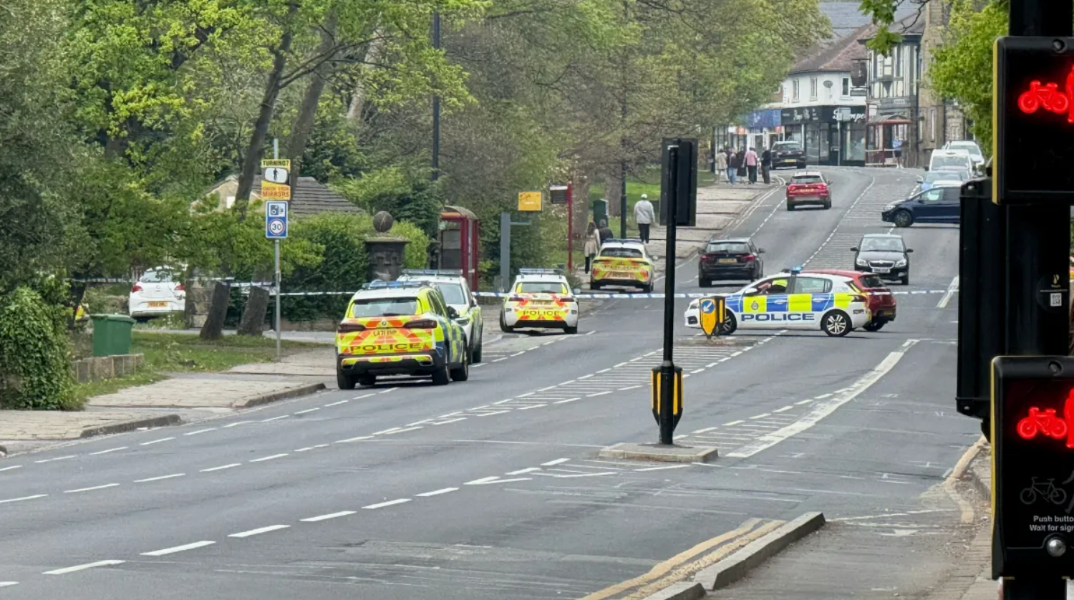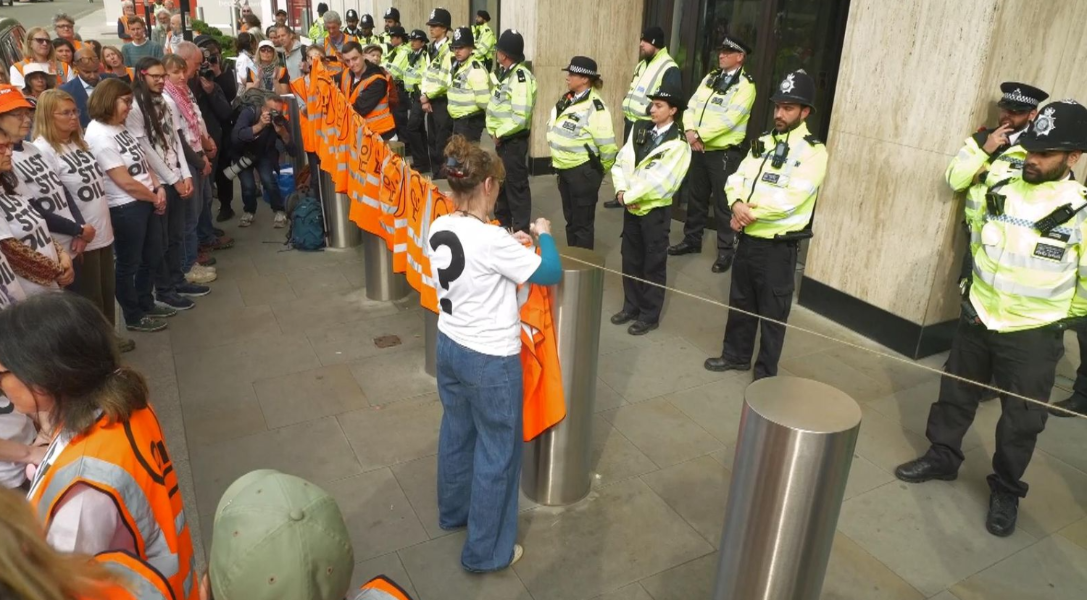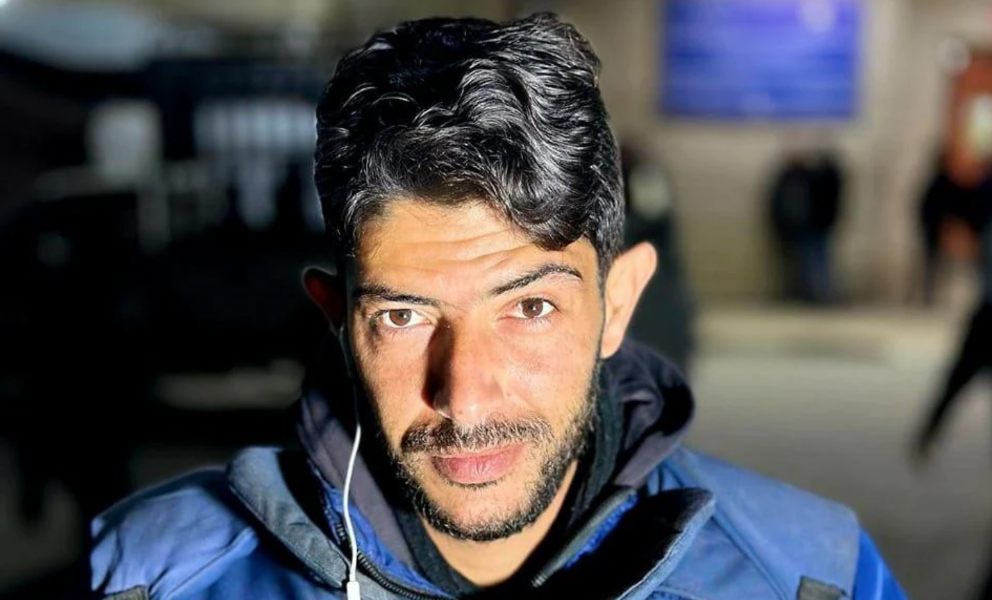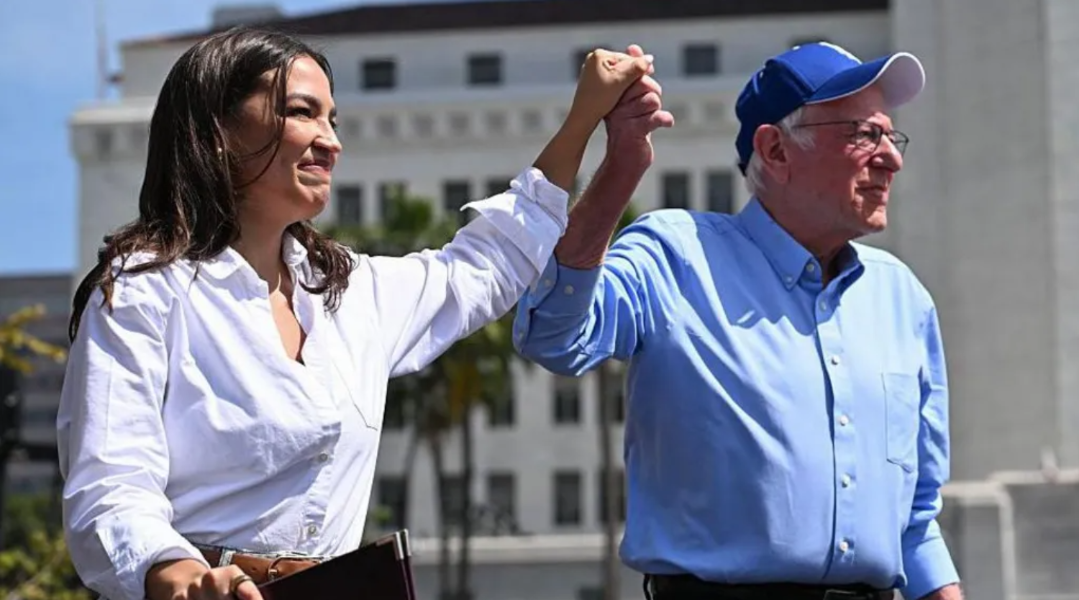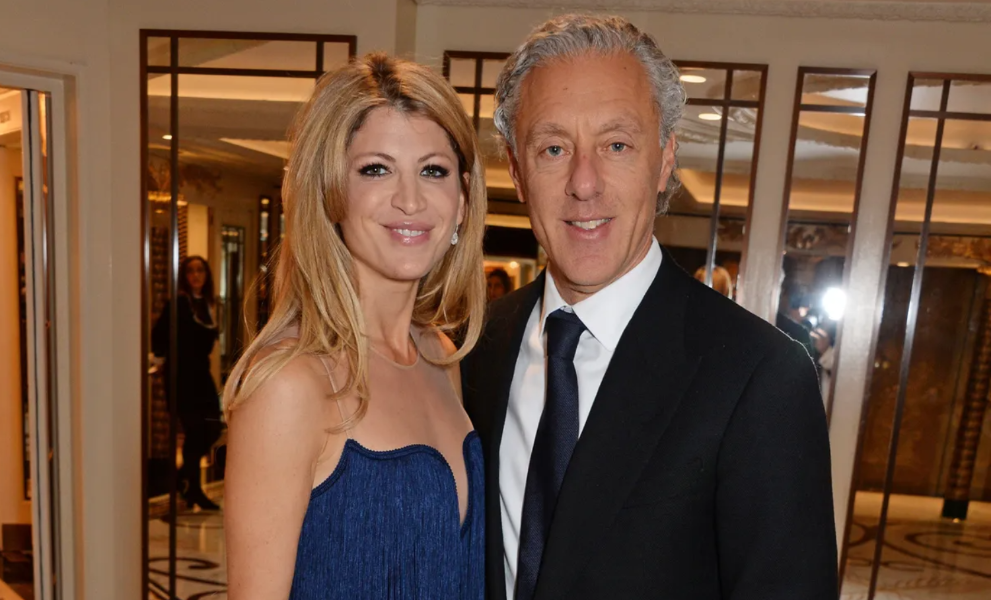-
Posts
10,735 -
Joined
-
Last visited
Content Type
Events
Forums
Downloads
Quizzes
Gallery
Blogs
Everything posted by Social Media
-
Tragic Missteps: New Report Reveals Critical Errors Behind Black Hawk and Jet Collision That Killed 67 A devastating new report has unveiled the fatal missteps that led to the collision between a Black Hawk helicopter and an American Airlines passenger jet, killing 67 people. The investigation found that Army Black Hawk pilot Capt. Rebecca Lobach did not comply with critical directions to alter her course seconds before the fatal incident. On the night of January 29, Capt. Lobach was undergoing her annual flight evaluation, with Chief Warrant Officer 2 Andrew Loyd Eaves serving as her instructor. According to details published by The New York Times, Lobach made several critical errors, including flying the Black Hawk too high and failing to heed advice from both air traffic control and her co-pilot moments before the crash. The crew was first alerted to the presence of an approaching aircraft during the evaluation flight. Despite acknowledging the proximity of the plane and spotting it visually, Lobach and Eaves requested to continue under "visual separation," a procedure that relies on pilots using their own observations to maintain a safe distance rather than strictly following air traffic control directions. Aviation experts noted, "The request to fly under those rules is granted routinely in airspace overseen by controllers. Most of the time, visual separation is executed without note. But when mishandled, it can also create a deadly risk — one that aviation experts have warned about for years." Fifteen seconds before the crash, air traffic control instructed the Black Hawk crew to turn left. Co-pilot Eaves reiterated the instruction directly to Lobach, telling her, according to the report, that "he believed that air traffic control wanted them to turn left, toward the east river bank." Nevertheless, Lobach did not make the turn, a decision that the report concluded "would have opened up more space between the helicopter and Flight 5342" if she had complied. Instead, tragedy struck as the helicopter and the jet collided, killing all 67 people aboard both aircraft. Lobach, an aviation officer from Durham, North Carolina, had accumulated around 500 hours of flight time and had previously served as a White House military social aide during the Biden administration. The investigation also revealed that a critical step was missed that night. According to Federal Aviation Administration (FAA) regulations, pilots must be explicitly informed if two aircraft are on a collision course. Experts concluded that "immediate intervention was needed" but did not occur, noting, "Direct, immediate intervention was needed that night. Instead of seeing and avoiding Flight 5342, Captain Lobach continued flying straight at it." Why Lobach failed to act remains a mystery. Investigators theorize that she may have been "blindsided" by the American Airlines flight’s maneuvering, specifically its "circling" of Runway 33—a crucial detail the Black Hawk crew may not have heard. It is believed that both pilots might have been pressing the microphone key while this information was transmitted. "If the key is depressed, the pilot can speak but not hear incoming communications," the report explained. There is no indication that Lobach experienced a medical emergency during the crash, and no pre-existing health issues were identified, according to those close to her and the investigation. Further complicating the situation, earlier findings from February indicated that the Black Hawk's altitude readings might have been inaccurate moments before the crash. NTSB Chair Jennifer Homendy explained that the helicopter’s crew missed critical instructions because a radio transmission "was stepped on," preventing them from hearing the words "pass behind the" during a crucial communication exchange. "At 8:47:42 — or 17 seconds before impact — a radio transmission from the tower was audible on both CVRs directing the Black Hawk to pass behind the CRJ," Homendy stated. The Black Hawk was conducting a check flight that night, and the crew were using night vision goggles throughout the mission. Investigators believe the goggles remained on until the collision. It was also discovered that the helicopter’s Automatic Dependent Surveillance–Broadcast (ADS-B) system was turned off for "no compelling reason," as Sen. Ted Cruz had previously told The New York Times. This system would have provided real-time location, altitude, and speed data, possibly preventing the collision. The American Airlines jet, piloted by 34-year-old Jonathan Campos, was preparing to land after flying from Wichita, Kansas. The jet had adjusted its approach to use a shorter runway at the request of air traffic control, a move confirmed by flight-tracking sites. Just two seconds before the collision, the passenger jet's altitude was recorded at 313 feet. The loss was immense, touching families across the country. Among the passengers were hunters, students and parents from northern Virginia schools, and members of the Skating Club of Boston, who were returning from a development camp following the 2025 U.S. Figure Skating Championships in Wichita. Related Topics: AA’s Diversity Policies Under Fire After Deadly Air Collision Midair Collision Near Reagan National Sends Plane into Potomac River Adpated by ASEAN Now from Daily Mail 2025-04-29
-
Labour Faces Ongoing Threat From Gaza-Backed Independents in Local Elections Muslim voters have long been a crucial part of Labour’s support base, but a deepening sense of disillusionment, exacerbated by the war in Gaza, is now fueling concerns within the party that this support may be slipping away permanently. Many Muslim voters turned to independent candidates in last year's general election, and with local elections approaching, Labour figures worry this shift is becoming a permanent feature of British politics. Much of the attention heading into the upcoming local elections has been on Reform UK, with Nigel Farage’s party tipped to gain hundreds of council seats from both the Tories and Labour. Yet in towns like Burnley, Lancashire, another narrative is quietly taking shape: the rise of Gaza-focused independent candidates threatening Labour’s traditional stronghold in Muslim communities. Although Labour leader Keir Starmer secured a resounding victory last July, the party suffered shocks in areas with large Muslim populations. Jonathan Ashworth, a former shadow cabinet minister, lost his Leicester South seat to independent candidate Shockat Adam, while Health Secretary Wes Streeting saw his majority in Ilford North slashed from over 9,000 to just over 500 votes. Senior Labour insiders believe this shift is not a one-off, with some convinced that independent candidates will continue to erode Labour’s Muslim vote. Burnley offers a clear example of where Labour could be vulnerable. Despite celebrations for Burnley Football Club’s promotion to the Premier League, the town struggles with severe deprivation, with government statistics revealing record numbers of young people living in poverty. Rob Ford, a politics professor at the University of Manchester, told PoliticsHome that "the general level of discontent in the Muslim communities is very high." He added that the war in Gaza has become a “lightning rod” issue, encouraging Muslim voters to turn away from Labour. One Labour MP warned, “People in the party are putting their focus on Reform, which I get, but also at the expense of this threat,” adding, “these are real extremists.” Independent candidates like 18-year-old Maheen Kamran are stepping into this space. Motivated by the situation in Gaza, Kamran aims to improve school standards, public cleanliness, and promote gender-segregated public spaces. "There’s a big aspect of free mixing,” she said. “Muslim women aren’t really comfortable with being involved with Muslim men. I'm sure we can have segregated areas, segregated gyms, where Muslim women don't have to sacrifice their health." Another independent, Usman Arif, is running in Burnley North East after leaving Labour over its stance on Gaza. He regularly posts about the war on his Facebook page and is campaigning on local issues like potholes and public safety. In Preston, too, Labour fears a dent in its support after pro-Gaza independent Michael Lavalette came second in last year’s election. Lord Hayward, a Tory peer and pollster, predicted that this realignment of Muslim voters could have a “lasting effect.” He told PoliticsHome, “I don’t see Labour being able to resolve this issue with the Muslim community in places where there are large Muslim populations,” adding that the ongoing conflict in Gaza will make it even harder for Labour to win back disillusioned voters. A Labour source spoke of an “unravelling of the social fabric” in areas where support for independents is surging. "There are strong divisions in these seats on the fault lines of class and religion. But what unites those communities is a general disillusionment with politics and government, and disappointment at the decline of public services." Former Labour candidate Khalid Ahmed, who resigned from the party over its Gaza stance, is now working with Ayoub Khan, an independent MP, to expand their influence. However, a lack of formal coordination among independent candidates remains a hurdle. Ali Arshad, a Kirklees councillor elected on a pro-Gaza platform, even described the Reform UK manifesto as "brilliant," except for its stance on the European Convention on Human Rights, indicating the complexity of the new independent movement. Meanwhile, Khalid Mahmood, Labour’s former MP for Birmingham Perry Barr, warned that Labour must stand against "Islamist" interests, saying, “While some Islamist organisations continue to pressure the government under the guise of combating Islamophobia, their demands are rarely about genuine inclusion. They are political and often incompatible with liberal democratic values.” Labour’s strategy is to improve public services to win back voters across all communities. Yet, as the local elections loom, it seems clear that the challenge posed by independent, pro-Gaza candidates is one Labour cannot afford to ignore. Adpated by ASEAN Now from Politics Home 2025-04-29
-
Trump’s Decision on Ukraine Negotiations Expected This Week, Rubio Says Secretary of State Marco Rubio announced on Sunday that the Trump administration will decide within the coming week whether to continue pushing for a negotiated settlement in the ongoing conflict between Russia and Ukraine, or if it will shift its focus to other pressing matters. Speaking on NBC’s "Meet the Press," Rubio described the upcoming days as "very important," noting, "We have to make a determination about whether this is an endeavor that we want to continue to be involved in or if it’s time to sort of focus on some other issues that are equally if not more important in some cases." It remains unclear whether Rubio’s remarks were intended to pressure Ukraine and Russia into initiating direct peace talks or whether President Trump and his advisers are seriously contemplating abandoning the negotiations altogether. Meanwhile, Russia’s foreign minister, Sergey V. Lavrov, offered no strong indication that a breakthrough was imminent. Appearing on CBS News’s "Face the Nation," Lavrov stated, "We are ready to reach a deal," but acknowledged, "There are still some specific points — elements of this deal which need to be fine-tuned." Tensions were heightened last Thursday when Russia unleashed a wave of missile and drone attacks on Kyiv, resulting in the deaths of at least 12 people. The strikes drew unusually strong condemnation from President Trump. Despite this, Lavrov revealed during his CBS interview, recorded the same day as the attacks, that Russia had yet to agree to a U.S. proposal for a 30-day full cease-fire, an idea the Ukrainians have already endorsed. Rubio’s comments came just a day after an unexpected meeting between President Trump and Ukrainian President Volodymyr Zelensky at the Vatican, where both leaders were attending Pope Francis’s funeral. Photos posted by aides showed Trump and Zelensky engaged in conversation inside St. Peter’s Basilica. It marked their first face-to-face meeting since a heated Oval Office encounter in February, during which Trump and Vice President JD Vance publicly criticized Zelensky for what they perceived as a lack of appreciation toward the United States. The negotiations have been complicated by several contentious points. Among them is the Trump administration’s demand that the United States recognize Crimea as Russian territory, and its apparent willingness to accept Russia’s ongoing occupation of significant areas of eastern Ukraine, seized since 2014. Trump has also signaled he would block Ukraine’s membership in the North Atlantic Treaty Organization during his tenure. After his meeting with Trump on Saturday, Zelensky expressed cautious optimism. In a social media post, he described their conversation as a "very symbolic meeting that has potential to become historic, if we achieve joint results." White House spokesman Steven Cheung echoed this sentiment, calling the discussion "very productive." Adpated by ASEAN Now from New York Times 2025-04-29
-
Justice Department Strips Immunity from UN Palestinian Relief Agency, Backing Lawsuit by Oct. 7 Victims' Families In a significant reversal of previous U.S. policy, the Justice Department has declared that the United Nations Relief and Works Agency for Palestine Refugees (UNRWA) is not entitled to immunity from prosecution, opening the door for a $1 billion lawsuit brought by survivors and families of the victims of the October 7, 2023, Hamas massacre. Under President Biden’s administration, the Justice Department had argued that UNRWA and its personnel were protected by “absolute immunity” under the International Organizations Immunities Act of 1945. However, the Trump administration has now taken a starkly different position. "Previously, the Government expressed the view that certain immunities shielded UNRWA from having to answer those allegations in American courts," said a letter submitted Thursday to U.S. District Judge Analisa Torres of the Southern District of New York. "The Government has since reevaluated that position, and now concludes UNRWA is not immune from this litigation. Nor are the bulk of other defendants," wrote U.S. Attorney Jay Clayton and Acting Assistant Attorney General Yaakov Roth in the letter. This letter was submitted in support of a lawsuit filed on June 24, representing over 100 victims and survivors. The lawsuit accuses UNRWA and seven of its current or former leaders of playing a key role over the last decade in helping Hamas build the “terror infrastructure and personnel that were necessary to carry out the October 7 Attack.” “As a result, UNRWA is not subject to the General Convention, and is not immune from suit under that treaty or current U.S. law,” the Justice Department’s letter asserted. Furthermore, the document argued that UNRWA cannot even be classified as a “subsidiary organ” of the United Nations because it was not designated as such under the International Organizations Immunities Act. "It is the present view of the United States that UNRWA is not" considered an official part of the United Nations, the letter said, but "instead, it is a mere 'affiliate or instrumentality' of the UN, analogous to the specialized agencies referenced in the UN Charter." This shift marks a dramatic legal and political moment for the families seeking justice for the victims of the Hamas assault, potentially exposing UNRWA to massive financial damages and intensifying scrutiny of its operations in the region. Related Topics: Victims of October 7 Attack Sue UNRWA for $1 Billion, Accusing It of Aiding Hamas Released Hostage Emily Damari Tells Keir Starmer she was held in UN Facilities Survivors sue UNRWA USA for funding Hamas terrorism Adpated by ASEAN Now from AP | TOI 2025-04-26
-
Donald Trump’s Mission to Reshape America: “Fighting for the World” Donald Trump is described as being “on a jihad” to reform the United States, according to Steve Bannon, a close ally and former chief strategist. Speaking to Time Magazine in an extensive interview marking the president’s first 100 days back in office, Bannon and other members of Trump’s inner circle portrayed a leader determined to upend traditional structures and reshape America to his vision. Discussing the Trump administration’s aggressive overhaul of federal institutions and its clashes with universities and the courts, Bannon stated, “He is on a jihad to reform them first by bringing them to heel.” Since resuming office, Trump has targeted U.S. institutions with sweeping changes, ignited a global trade war, threatened U.S. allies with military occupation, and embarked on what he describes as the “largest deportation” effort in American history, all part of his ambition to rebuild the global order in his image. “Our success depends on his ability to shock you,” one senior official confided to Time. Despite grand promises such as ending the Russia-Ukraine war on “day one,” Trump later clarified that such claims were “an exaggeration” made “in jest.” Nevertheless, he insisted that “Crimea will stay with Russia” under any peace deal and suggested Ukraine bore responsibility for the conflict, stating, “I think what caused the war to start was when they started talking about joining Nato.” Trump’s first months in office have been marked by provocative ideas, including proposals to annex Greenland, reclaim control of the Panama Canal, and make Canada America’s “51st state.” While critics dismiss these notions as jokes, Trump asserted to Time, “I’m really not trolling. Canada is an interesting case.” He further added that he “wouldn’t mind” being remembered for expanding American territory. “I have solved more problems in the world without asking for or getting credit,” Trump said. Amid criticism of his trade policies, Trump remains steadfast in his belief that tariffs are crucial. “The bond market was getting the yips, but I wasn’t,” he explained to Time. Trump said he would consider it a “total victory” if the United States maintained 50 percent tariffs by next year. In a relentless drive to slash federal spending, Trump has acted swiftly to dismantle parts of the government, eliminating over 100,000 civil servant positions. “He has ceded absolutely nothing to the bureaucracy — zero,” said senior adviser Susie Wiles. “Everything he wants to do or thinks is important for the country, we have figured out a way.” Central to this effort is Elon Musk’s newly created Department of Government Efficiency, tasked with rooting out “waste, fraud and abuse” within government agencies. Wiles noted that the Doge initiative has been Trump's most powerful tool, remarking, “Had we not done that, even with the discomfort it caused… then we would leave here in four years having cut the federal bureaucracy by 0.18 per cent.” Trump has also demonstrated little hesitation in making others uncomfortable to achieve his goals. He once delivered a 45-minute lecture to Congressional Republicans to push through his spending bill, emphasizing, “This is what I want.” In a tougher stance on immigration, the president has sent hundreds of migrants to El Salvador’s Cecot prison and arrested foreign students and academics for allegedly harboring anti-American sentiments. On the high-profile deportation case of Kilmar Abrego Garcia, mistakenly sent to El Salvador, Trump admitted he was initially “not happy” about the mistake but changed his mind after hearing about Garcia’s alleged ties to the MS-13 gang, a claim Garcia denies. Trump likened this controversy to a "men in women’s sports issue" for his political opponent. Additionally, Trump expressed enthusiasm for the idea of sending U.S. citizens convicted of violent crimes to foreign prisons, saying it was something his administration was “looking into” and that he would “love to” implement. Asked which criminals he had in mind, he responded, “people that hit old ladies over the head with a baseball bat” and “people that push people into subway trains.” Comparing his pace of reform to that of leaders in Venezuela, Turkey, and Hungary, Trump boasted, “I am moving much faster.” He added, “What worries me most has been how slow US society has responded.” Despite swirling rumors that Trump might seek a third term through legal loopholes, he dismissed the speculation, asserting, “I don’t believe in using loopholes.” For now, Trump’s attention is firmly set on leaving a historic legacy. Reflecting on his current term compared to his previous tenure, he concluded, “Last time I was fighting for survival. This time I’m fighting for the world.” Adpated by ASEAN Now from The Telegraph 2025-04-26
-

Starmer Eyes Migration Clampdown Amid Reform’s Rising Tide
Social Media posted a topic in World News
Starmer Eyes Migration Clampdown Amid Reform’s Rising Tide Sir Keir Starmer is preparing to unveil a major crackdown on immigration after the local elections this week, where Reform UK is expected to make significant gains by capturing hundreds of council seats. A white paper detailing the Government’s plans to reduce legal migration is set to be published in the weeks following the May 1 vote. Among its measures, it is expected to tighten rules around foreign students staying in the UK by restricting those on graduate visas from taking low-paid jobs such as in healthcare. Reform UK, the right-wing party led by Nigel Farage, is poised to secure council seats and leads in two mayoral races. The party is also contesting the Runcorn and Helsby by-election, with a real chance of taking the seat from Labour. Sir Keir has notably not campaigned in the by-election, a move that Mr Farage described as “astonishing.” Mr Farage, who has made three visits to the constituency and plans to return on polling day, sees the Prime Minister’s absence as a sign of Labour’s low expectations. While some insiders from the Home Office insist that the migration plans have been underway since November, others see the move as a response to the expected bruising local election results for Labour. Discontent within Labour’s ranks is already surfacing. Lord Glasman, a peer close to Downing Street and a leader of the "Blue Labour" movement pushing for a more right-leaning Labour, warned that the party would “get its head kicked in” by Reform at the local elections. Speaking to The Observer, Lord Glasman said, “It’s game over if they don’t change. People are losing faith in government, in the most general way, and someone has to stop that. Labour must be a pro-worker, patriotic party, not talking gibberish about diversity.” A senior trade union figure also told The Telegraph that a “sizeable” portion of union members are planning to vote for Reform, especially in traditional working-class areas. National polling puts Reform at 25 percent, nearly double the 14 percent it secured in the July general election, with Labour trailing at 23 percent and the Conservatives at 21 percent. Mr Farage, taking a hardline stance on immigration, has vowed to become the “deporter-in-chief” of illegal migrants if given the chance. Morgan McSweeney, Labour’s chief of staff, has long maintained that fulfilling Labour’s promise to cut net migration is vital to blunting Reform’s appeal. Annual net migration reached a record 906,000 in the year to June 2023, before dropping slightly to 728,000 the following year. The forthcoming white paper is expected to set new targets to drive that number down even further. A Home Office source confirmed, “We’ve made a really strong commitment that the Home Secretary wants to reduce net migration. We will use the immigration white paper as a tool for that.” The white paper, anticipated before May 19 when a UK-EU summit is scheduled, will also propose banning employers who break minimum wage laws from hiring workers abroad. Companies will be encouraged to invest in training local staff for jobs that often rely on foreign workers. Graduate visas are another focus; Home Secretary Yvette Cooper has identified a trend where foreign graduates switch to health and social care visas, allowing them to stay longer. Officials are considering setting a wage threshold to close this loophole. However, the proposed crackdown may face backlash from the already struggling social care sector, which relies heavily on foreign workers. Although there is growing optimism about a potential UK-EU deal that could ease movement for young people, the white paper will not address it, as negotiations are still underway. Tougher migration policies are likely to spark debate about their impact on economic growth, which Sir Keir has emphasized as his top priority. In its first six months, Labour increased the deportations of failed asylum seekers and foreign criminals and has begun releasing images of deportation flights to demonstrate its tough stance. Commenting on the Runcorn and Helsby by-election, Mr Farage told The Telegraph, “I find it astonishing that the PM hasn’t turned up at the first by-election of the parliament. To us, it is an indication that Labour intelligence says they’re not going to win.” A Labour Party spokesperson declined to comment. Adpated by ASEAN Now from The Telegraph 2025-04-29 -
Cash-Strapped Council Sparks Outrage Over £60,000 Anti-Racism Role Amid Service Cuts Norfolk County Council has come under heavy criticism after announcing it is recruiting an anti-racism officer on a salary of up to £60,000 a year, despite recently switching off street lights to save money. Rupert Lowe, the former Reform Party member and now independent MP, condemned the move, arguing that the council was wasting resources on “guff” while essential services were suffering. The council, which faces £45 million worth of cuts and savings to balance its budget, is seeking an “anti-racist practice lead” for its children’s services department. In the job advert posted online, the council stated, “We want to do all we possibly can to ensure that: our front-line practice is culturally competent, curious and does not inadvertently or otherwise introduce prejudice or bias. [And] our global majority staff feel respected, supported and safe from discrimination whether in the workplace or out doing their work in the community.” The phrase “global majority” has increasingly been used to refer to non-white people, replacing the traditional BAME (black and minority ethnic) terminology. Kemi Badenoch, a Conservative Party leader, has previously accused organisations of embracing the term at the advice of “anti-white” bodies. The advertised role offers an 18-month fixed-term contract with a salary between £55,147 and £60,676 a year. Mr Lowe, representing Great Yarmouth, did not mince words about the council’s decision, stating, “I am calling on Norfolk County Council to do the right thing, cancel the ludicrous job and pump that money back into the communities in Great Yarmouth that need it.” He also warned against the spread of what he called a “poisonous” ideology within the public sector. Supporters of diversity initiatives argue that such programmes are necessary to address historical under-representation and systemic discrimination against racial minorities. However, critics counter that these efforts can themselves become discriminatory and represent poor spending choices at a time when public services are facing severe financial constraints. Norfolk County Council is attempting to find savings across its services, with £24.5 million in cuts planned for adult social care and £14.6 million for children’s services this year alone. Last year, the council agreed to switch off 1,000 street lights across the county, aiming to both cut carbon emissions and save £200,000 annually. In response to the backlash, a council spokeswoman defended the decision, saying, “We have previously publicly committed to tackling the harm caused by racism, which we know sadly impacts many of the children and families we support and also harms colleagues as they go about their work in communities to keep children safe. We want all our staff to feel respected and supported and ensure children can flourish, whatever their background. This post will ensure we have the skills and capacity to take the necessary action to root out and eliminate racism where it exists.” The controversy highlights the ongoing tension between financial prudence and efforts to address social issues, raising important questions about public spending priorities in times of austerity. Adpated by ASEAN Now from The Telegraph 2025-04-29
-
Tragedy Strikes as Dozens of African Migrants Killed in US Air Raid on Yemen At least 68 African migrants have been killed following a US air strike on a detention centre in Yemen's north-western Saada province, according to the Houthi group's TV channel, Al Masirah. The channel also reported that another 47 migrants were critically injured. Shocking footage broadcast by Al Masirah showed multiple bodies buried under the rubble of the destroyed building. There has been no immediate response from the US military regarding the incident. However, the strike came shortly after US Central Command announced that it had hit more than 800 targets since President Donald Trump ordered an escalation of military operations against the Houthis on March 15. Centcom stated that the campaign had "killed hundreds of Houthi fighters and numerous Houthi leaders", including senior figures involved in overseeing missile and drone programs. Despite the US claims, Houthi-controlled authorities have said the intensified air strikes have killed dozens of civilians, with few Houthi fighters reported among the casualties. The detention centre hit on Sunday night was reportedly holding 115 African migrants at the time of the strike. Even after 11 years of relentless conflict, Yemen remains a destination for migrants fleeing hardship. Many arrive by boat from the Horn of Africa, hoping to reach Saudi Arabia in search of work. Yet, according to the International Organization for Migration (IOM), these migrants often face "exploitation, detention, violence, and dangerous journeys through active conflict zones." The IOM notes that nearly 60,900 migrants have arrived in Yemen in 2024 alone, often with no resources to survive once they arrive. Earlier in April, Houthi authorities reported that a series of US strikes on the Ras Isa oil terminal on Yemen's Red Sea coast resulted in at least 74 deaths and 171 injuries. They insisted the facility was civilian and accused the US of committing a "war crime." In contrast, Centcom stated that the strike destroyed Ras Isa’s fuel-handling capabilities, claiming it would "begin to impact Houthi ability to not only conduct operations, but also to generate millions of dollars in revenue for their terror activities." In March, President Trump ordered sweeping air strikes on Houthi-controlled areas and warned that the group would be "completely annihilated" if their attacks continued. Trump also cautioned Iran against providing arms to the Houthis, a charge Tehran has consistently denied. On Sunday, Centcom reaffirmed its position, declaring that it would "continue to ratchet up the pressure until the objective is met, which remains the restoration of freedom of navigation and American deterrence in the region." Since November 2023, the Houthis have launched dozens of attacks on merchant ships in the Red Sea and the Gulf of Aden using missiles, drones, and small boats. They have succeeded in sinking two vessels, seizing another, and killing four crew members. The Houthis claim their actions are in solidarity with Palestinians amid the ongoing war between Israel and Hamas in Gaza, often stating they are only targeting vessels linked to Israel, the US, or the UK, though many of these claims have been proven false. Despite the deployment of Western naval forces to safeguard merchant shipping and multiple US military strikes ordered by former President Joe Biden, the Houthis showed little sign of retreating. Yemen’s civil war has left a catastrophic mark on the country. Since the Houthis seized control of the north-west a decade ago and a Saudi-led coalition, backed by the US, intervened to restore the internationally recognized government, more than 150,000 people have reportedly died. The fighting has also displaced 4.8 million people, while 19.5 million – half the population – are now in urgent need of humanitarian aid. Adpated by ASEAN Now from BBC 2025-04-29
-
Canadian Voters Head to the Polls Amid Rising Tensions with the US Canadians turned out to vote on Monday in a national election shaped by economic instability, US tariffs, and unprecedented annexation threats from their southern neighbor. The outcome will determine whether Prime Minister Mark Carney secures a full four-year term or whether the Conservative Party, after nearly a decade out of power, will take control of the government. Voting officially began at 8:30 a.m. local time in Newfoundland and Labrador, marking the start of a day closely watched both domestically and internationally. The election has been heavily influenced by Canada’s increasingly strained relationship with the United States. US President Donald Trump’s imposition of tariffs on Canadian exports has threatened the economic health of the nation. His provocative remarks about making Canada the "51st state" have further fueled outrage across the political spectrum. "I reject any attempts to weaken Canada, to wear us down, to break us so that America can own us," Carney declared to reporters in March. "We are masters in our own home." The primary contest pits Carney’s Liberals against the Conservative Party, led by veteran parliamentarian Pierre Poilievre. Carney, a former governor of both the Bank of Canada and the Bank of England, took over as Prime Minister in March after Justin Trudeau resigned amid poor polling numbers and mounting political pressure. Assuming leadership during an intensifying trade war, Carney adopted a firm stance, upholding retaliatory tariffs initiated under Trudeau’s government. Carney’s campaign has focused on portraying himself as a centrist leader capable of guiding Canada through economic turbulence. "I understand how the world works," Carney told podcaster Nate Erskine-Smith in October. "I know people who run some of the world’s largest companies and understand how they work. I know how financial institutions work. I know how markets work…I’m trying to apply that to the benefit of Canada." He has also promised to "build things in this country again" to reduce Canada’s economic dependence on the United States, pledging to invest in homes, factories, and both "clean and conventional energy" sources. "My solemn promise is to stand up for Canadian workers, to stand up for Canadian businesses," Carney said in March. "We will stand up for our history, our values and our sovereignty." Meanwhile, Pierre Poilievre has sought to channel voter frustration with the status quo, framing the election as a choice between ordinary Canadians and entrenched "Ottawa elites." "The same people who ran Justin Trudeau are now running Mark Carney," Poilievre said at a rally shortly after Carney assumed office. "Liberals are trying to trick Canadians into electing them for a fourth term in power." Poilievre’s "Canada first" platform advocates slashing government spending, reducing bureaucracy, and loosening environmental regulations to ramp up resource extraction. "Conservatives will axe taxes, build homes, fix the budget," Poilievre promised in March, vowing to "unleash our economic independence by building pipelines, mines, [liquified natural gas] plants and other economic infrastructure that will allow us to sell to ourselves and the rest of the world." Despite stylistic similarities to Trump’s populism, Poilievre has tried to maintain distance from the American president during the campaign. After Trump publicly encouraged Canadians to support him, Poilievre responded firmly, telling Trump in a social media post to "stay out" of Canada’s election. As election day approached, voter turnout appeared to be high. Elections Canada reported that at least 7.3 million Canadians voted early, a 25% increase over the 2021 federal election. "I voted on the first day of advance polls and I waited 45 minutes," said Kristina Ennis from St. John’s, Newfoundland. "I know people who waited over an hour." The final results will determine not only the future direction of Canada’s domestic policy but also how the country navigates an increasingly volatile relationship with its most powerful neighbor. Adpated by ASEAN Now from CNN 2025-04-29
-
Russia has firmly rejected a peace proposal put forward by US President Donald Trump aimed at ending the war in Ukraine, citing the plan’s failure to recognize territory seized by Russian forces. Sergey Lavrov, the Russian foreign minister, said the proposal also fell short of Moscow’s broader demands, including the removal of Ukrainian President Volodymyr Zelensky and limits on the size of Ukraine’s military. The rejection came as Russian President Vladimir Putin offered a 72-hour ceasefire next month to mark the 80th anniversary of the end of the Second World War in Europe. The White House stated that President Trump, who is eager to secure a deal this week, wanted to see a “permanent ceasefire” but was growing “increasingly frustrated” with the leaders of both Russia and Ukraine. Ukraine responded to Putin’s offer by proposing a month-long ceasefire to create space for negotiating a longer-lasting peace. Lavrov's remarks, delivered in an interview with Brazil’s O Globo newspaper and later republished by Russia’s foreign ministry, represent a hardening of the Kremlin’s stance. Lavrov insisted that the "international recognition" of Russia’s sovereignty over Crimea and the partially occupied regions of Donetsk, Luhansk, Kherson, and Zaporizhzhia was “imperative.” He added, “Demilitarising and de-Nazifying Ukraine is also on the agenda, along with lifting sanctions, withdrawing lawsuits and cancelling arrest warrants, as well as returning Russian assets subjected to the so-called freeze in the West.” Lavrov further demanded “solid security guarantees ... in order to shield it from any threats emanating from hostile activities by Nato [and] the European Union.” These sweeping demands starkly contrast with the proposal recently discussed with Ukrainian officials in Paris and refined at another meeting in London. That seven-point agreement would hand Russia de-facto control over large parts of Ukraine and recognize its hold over Crimea, but Trump reportedly warned that Russia could not insist on limiting Ukraine’s armed forces or its defense industry as a condition for peace. European powers, led by Britain and France, are working on post-war security guarantees for Ukraine, believing that strengthening Ukraine’s military is essential to prevent future Russian aggression. A previous attempt to broker peace early in the war collapsed largely because it significantly restricted Kyiv’s military capabilities. On Monday, Putin announced a unilateral ceasefire from May 8 to May 11, aligned with Russia’s Victory Day celebrations commemorating the Soviet Union’s defeat of Nazi Germany in 1945. “All hostilities will be suspended during this period,” the Kremlin said in a statement. “Russia believes that the Ukrainian side should follow this example.” Putin added that he was willing to engage in peace talks, provided they addressed the “root causes” of his invasion. His latest offer came after Trump questioned whether Putin was “tapping me along” in a social media post following a meeting with Zelensky at the Vatican on Saturday. Putin had previously offered a similar Easter truce when Trump last pressed him on his commitment to ending the war. Responding to the Kremlin’s announcement, Ukraine’s foreign minister, Andrii Sybiha, said, “If Russia truly wants peace, it must cease fire immediately. Why wait until May 8? If the fire can be ceased now and since any date for 30 days – so it is real, not just for a parade. Ukraine is ready to support a lasting, durable, and full ceasefire. And this is what we are constantly proposing, for at least 30 days.” Karoline Leavitt, the White House press secretary, emphasized President Trump’s intentions, telling reporters, “The president has made clear he wants to see a permanent ceasefire first, to stop the killing, stop the bloodshed. While he remains optimistic he can strike a deal, he also is being realistic as well. Both leaders need to come to the table to negotiate their way out of this.” Adpated by ASEAN Now from The Telegraph 2025-04-29
-
A topic clean up has been completed. @josephbloggs a pure baiting post to another member who was not even on this topic has been removed. This is the second time you've been warned about this recently with another member. @SMIAI a number of posts removed as you have still not fixed your issue about quoting full posts yet carry on making replies to others. 2 copyrighted videos removed, one already taken off Youtube because of copyright infringement the other from an amatuer account is also breaking copyright infringement laws belonging to Mindhouse Productions
-
UN Court Set to Review Israel’s Humanitarian Responsibilities in Gaza Crisis The International Court of Justice (ICJ) in The Hague will commence a week of hearings on Monday to address Israel’s humanitarian responsibilities toward Palestinians, following more than 50 days of a complete blockade on aid entering Gaza. Proceedings will begin at 10:00 am (0800 GMT) with a presentation from United Nations representatives, followed by a submission from Palestinian authorities. In addition to the initial submissions, another 38 countries, including major global powers such as the United States, China, France, Russia, and Saudi Arabia, will present their arguments before the panel of 15 judges. International organizations like the League of Arab States, the Organisation of Islamic Cooperation, and the African Union are also scheduled to participate in the hearings. The move comes after the UN General Assembly passed a resolution in December urging the ICJ to deliver an advisory opinion "on a priority basis and with the utmost urgency." The resolution, led by Norway, was adopted by a substantial majority, reflecting widespread concern over the humanitarian situation in Gaza. The UN has specifically asked the court to clarify Israel’s obligations under international law toward the UN and its agencies, other international organizations, and third-party states. The aim is to determine Israel’s duty to "ensure and facilitate the unhindered provision of urgently needed supplies essential to the survival of the Palestinian civilian population." Israel maintains strict control over all incoming international aid intended for the 2.4 million Palestinians living in the Gaza Strip. Aid deliveries were entirely halted on March 2, just days before the breakdown of a ceasefire that had brought relative calm after 15 months of relentless conflict. Since the end of the two-month ceasefire in mid-March, the UN estimates that approximately 500,000 Palestinians have been displaced. On March 18, Israel resumed its aerial bombardments, followed closely by intensified ground operations. According to the UN, the escalation has resulted in what it describes as "likely the worst" humanitarian crisis to afflict the occupied Palestinian territory since the war began, triggered by Hamas's October 7, 2023, attack. The devastating Hamas assault led to the deaths of 1,218 people on the Israeli side, primarily civilians, based on an AFP tally derived from official Israeli statistics. Israel’s military response has since caused the deaths of at least 52,243 people in Gaza, also predominantly civilians, according to figures from the health ministry in the Hamas-run enclave. In addition, at least 2,111 Palestinians have died since hostilities resumed on March 18. Israel asserts that its military campaign is focused on pressuring Hamas to release the remaining captives. While the ICJ’s advisory opinions are not legally binding, the court emphasizes that they "carry great legal weight and moral authority." As the hearings unfold, they reflect a growing global concern and "broad frustration" over the deteriorating humanitarian situation in Gaza and the urgent need for clear legal guidance on Israel’s obligations under international law. Adpated by ASEAN Now from AFP 2025-04-28
-

Harvard’s Shift: How Islamist Influence Took Root on Campus
Social Media replied to Social Media's topic in World News
A troll post has been removed @Chomper Higgot 17. ASEAN NOW news team collects news articles from various recognised and reputable news sources. The articles may be consolidated from different sources and rewritten with AI assistance These news items are shared in our forums for members to stay informed and engaged. Our dedicated news team puts in the effort to deliver quality content, and we ask for your respect in return. Any disrespectful comments about our news articles or the content itself, such as calling it "clickbait" or “slow news day”, and criticising grammatical errors, will not be tolerated and appropriate action will be taken. Please note that republished articles may contain errors or opinions that do not reflect the views of ASEAN NOW. If you'd like to help us, and you see an error with an article, then please use the report function so that we can attend to it promptly. -
Harvard’s Shift: How Islamist Influence Took Root on Campus Harvard University, once a symbol of American academic excellence, has gradually transformed into a stronghold for leftist grievance groups, with antisemitism acting as the common thread binding them together. Having taught at Harvard from 1993 to 2014, I have little confidence that current federal interventions will succeed in reversing this cultural shift. Harvard’s leadership still does not grasp the full danger that this ideological transformation poses to the nation, nor the reasons it demands serious attention. The world changed dramatically on September 11, 2001, when al Qaeda’s Islamists turned American planes into deadly weapons. Fast forward to October 7, 2023, and Hamas militants similarly exploited Israel’s openness to launch a brutal attack, massacring civilians and kidnapping innocents. These jihadist strategies represent a new type of warfare, one that attacks from within rather than conquering outright. Most concerning is how elite American institutions like Harvard have been captured as ideological outposts for these movements. Harvard’s direct involvement became undeniable on October 8, 2023, when the Undergraduate Palestine Solidarity Committee, supported by over 30 student groups, released a statement blaming “the Israeli regime” as “entirely responsible for all unfolding violence.” Shortly after, Students for Justice in Palestine declared October 12 a “day of resistance,” complete with a “toolkit” to organize the demonstrations and encampments that soon spread beyond campus. In a bold move, SJP asserted that Palestinian students were “PART of this movement, not in solidarity with this movement.” Back in 2001, Harvard had no such student organizations openly supporting Islamist causes. However, the university had already become a soft target for foreign ideological penetration. Its adversarial stance toward the American government began in the 1970s, when antiwar activists pushed the Reserve Officers’ Training Corps off campus for four decades. Later, exclusion of military recruiters was justified by opposition to the military’s policies on homosexuality, even as the university continued to accept government funds. The curriculum took a similarly critical turn, increasingly portraying America and Western civilization in a negative light. As civil-rights legislation of the 1960s left some activists unsatisfied, Harvard responded by embracing group preferences in hiring, elevating grievance-based identity groups and embedding itself firmly in the progressive activist camp. Conservatives found themselves unwelcome, both in faculty hiring and in the ideas taught. By the 1990s, campus groups invited Afrocentric and Nation of Islam speakers who spread hostility toward whites and Jews. In 1992, Professor Henry Louis Gates Jr. warned: “This is anti-Semitism from the top down, engineered and promoted by leaders who affect to be speaking for a larger resentment.” The coalition expanded to include Marxists, anticapitalists, anticolonialists, and anti-imperialists. The Occupy Wall Street protests of 2011 were permitted to close Harvard Yard for months, reflecting how campus activism had been normalized. However, a unifying cause eluded these groups until the Palestinian issue provided a convenient rallying point. Students long discouraged from expressing patriotic sentiments or criticizing minority groups found in Israel a target sanctioned by political correctness. This shift was compounded by the influx of Middle Eastern money. The Department of Education reported that between January 2020 and October 2024, Harvard received over $100 million from countries including the United Arab Emirates, Egypt, Saudi Arabia, Qatar, and Bangladesh. In 2007, I began warning Harvard’s leaders that academic standards were being compromised by anti-Israel propaganda within the Center for Middle East Studies. While acknowledging the problem privately, administrators refused to take meaningful action, reasoning that other universities were just as complicit. The consequences became starkly visible after October 7, 2023. Students and faculty members not only excused but even celebrated the atrocities committed against Israeli civilians. A committee formed by the new Harvard Jewish Alumni Alliance found that campus “hatred” was “worse than we had anticipated.” Ideological anti-Zionism had permeated departments across Harvard, from the School of Public Health to the Divinity School, from anthropology to music, and even into the medical school. At the very moment when Harvard should have reaffirmed its proud heritage, it instead degraded its biblical studies programs and marginalized its Christian and Jewish traditions. Meanwhile, Islamist influence continued to grow amid America's broader cultural decline. There remain good people and valuable programs at Harvard. However, if Harvard continues to abandon its responsibility to uphold the pillars of American society and allows itself to be overtaken by an Islamist-fueled grievance movement, it cannot reasonably expect the support or trust of the American government. Related Topics: Harvard Advisor Resigns Amid Accusations of Aiding Hamas Operations in Gaza Harvard Becomes Resistance HQ in Trump’s Campus Culture War Biden's Surprise Visit to Harvard Marred by Protests, Gaffes, and Ice Cream Slip Adpated by ASEAN Now from Wall Street Journal 2025-04-28
-
Trump's First 100 Days: Supporters Weigh Progress, Pain, and Promises When Donald Trump staged his historic return to the presidency earlier this year, his diverse coalition of supporters — truck drivers, business owners, veterans, and others — played a crucial role. Now, 100 days into his second term, the BBC revisited five of them to gauge how they view the early days of Trump’s renewed leadership. Luiz Oliveira, a Brazilian immigrant who came to the U.S. legally in the 1980s, says Trump's fast-paced policy changes have been difficult to keep up with. Living in Nevada, Luiz is particularly pleased with Trump’s aggressive immigration stance, including new border restrictions and deportations, which have helped drive encounters at the U.S.-Mexico border to a four-year low. He describes the recent influx of migrants as an “invasion” and adds, “This is my house, my yard, and you're not going to stay here.” However, Luiz admits he is nervous about Trump's tariff policies. While he supports the goal of making other countries pay “their fair share,” he worries about the short-term economic pain. “It’s going to be painful [and] I don’t think it’s going to be as fast as he says. I’m a supporter, but at the end of the day, if this doesn’t work, I’ll say it’s a mistake — he did things too fast, scared the markets, scared the economy.” Amanda Sue Mathis, a 34-year-old Navy veteran, feels strongly that Trump is delivering on his promises. She praises him for focusing on domestic issues rather than foreign wars, saying, “There were a lot of people who cared about the wars in the Middle East and Ukraine, but I think it’s time we look at our country and get things in order before we go fix other countries’ problems.” She welcomes Trump’s rollback of Diversity, Equity and Inclusion policies and supports executive orders banning gender-affirming care for minors and restricting transgender women from female sports. Believing that Trump is “kicking butt” and restoring a “merit-based society,” she says his first 100 days have made her “happier with [her] vote.” Yet, Amanda Sue is clear-eyed about her loyalty, stating, “I’m not one of those people who is always for Trump. If he messes up, I’ll be the first one to tell you.” For Ben Maurer, a 39-year-old freight truck driver from Pennsylvania, Trump's quick action on tariffs has reaffirmed his support. Tariffs were central to Ben’s backing of Trump, and he is thrilled the president wasted no time imposing them on countries from China to Canada. Despite some turbulence — with tariffs being raised, lowered, and delayed during trade negotiations — Ben feels the strategy is working. “Trump has earned back the respect [for the US],” he says, believing businesses will ultimately benefit. He adds that Trump’s greater preparation this term is evident, noting, “We are still the force to be reckoned with.” In California, artist June Carey has mixed feelings about Trump’s second term. “He’s a bit more aggressive and a little bit more erratic than I expected,” she admits. Nevertheless, she is impressed by the “waste” uncovered by the Department of Government Efficiency, led by billionaire Elon Musk. Though skeptical of Musk, June says, “Musk is a character I don’t understand. My feeling is that if Trump has trusted him as much as he has, then he must be a pretty good guy with the right ideas and the right goals.” Concerned about welfare spending, June supports many cuts but is anxious that Social Security remains protected. She asks, “Why would they cut [social security] when they’ve cut so many things that have saved them millions and millions of dollars?” Finally, in Maine, automotive shop owner Jeremy Stevens remains a faithful Trump backer. “Trump is very aggressively getting things he promised on the campaign trail done,” he says. Jeremy acknowledges customer concerns about the economic turbulence tariffs have caused, but believes critics are missing the bigger picture. “There definitely is a perception out there about the impact of these policies that is short-sighted,” he argues. Although economists warn of a possible U.S. recession, Jeremy is optimistic, saying, “It’s a temporary pain. This too shall pass.” From cautious optimism to unwavering faith, Trump’s supporters continue to navigate the triumphs and tensions of his turbulent return to power — convinced, for now, that the president is on the right path. Adpated by ASEAN Now from BBC 2025-04-28
-
Terror Police Lead Investigation After Gun and Crossbow Attack Injures Three in Leeds A shocking attack involving a crossbow and a firearm has left two women injured and a man under arrest in Leeds, prompting counterterrorism police to take over the investigation. The incident unfolded on the northwest outskirts of the city on Saturday afternoon, with officers being called to Otley Road at 2.47pm following reports of an "ongoing serious incident involving a man seen with weapons," according to West Yorkshire Police. Police recovered a crossbow and a firearm from the area, which sits in the heart of Headingley, a busy and vibrant part of Leeds popular with university students and known for the famous "Otley Run" pub crawl. Officers said that multiple crime scenes were in place as they worked to piece together the full circumstances surrounding the incident. Yvette Cooper, the home secretary, responded quickly to the attack, labeling it a "serious violent incident." In a statement, she said: "I am being kept updated on the serious violent incident in Leeds this afternoon. Thank you to the police and emergency services for their swift response. My thoughts are with the victims and all those affected by this attack." Detective Chief Superintendent James Dunkerley, head of Counter Terrorism Policing North East, confirmed that while the investigation is still in its early stages, counterterrorism officers have assumed control. He stated: "Although our inquiries are still at a very early stage, the circumstances surrounding this incident have resulted in Counter Terrorism Policing taking the lead for this investigation." Dunkerley also sought to reassure the public, adding: "From the inquiries undertaken so far, there is no evidence to suggest anyone else was involved in the attack, and, at this time, we are not looking for anyone else in relation to the incident." As police continue their investigation, the community remains on edge, with many shocked that such violence occurred in a normally lively and safe part of the city. Authorities have urged anyone with information to come forward as they work to understand the full motive behind the attack. Adpated by ASEAN Now from The Times 2025-04-28
-
Just Stop Oil Declares Victory and Ends Direct Action Campaign in London After three years of headline-grabbing protests, Just Stop Oil (JSO) has declared its campaign a success and brought an end to its direct action efforts with one final march through central London. As activists ceremoniously hung up their iconic orange high-vis vests on Saturday, the group insisted, "It has been a success." Since its formation, JSO has drawn both attention and controversy through a series of bold actions. From disrupting major sporting events and throwing soup over Vincent van Gogh’s Sunflowers to climbing gantries over the M25 and spraying orange paint across Stonehenge, their protests have sparked fierce debate. The financial cost to police forces has run into tens of millions of pounds. Now, the group says those dramatic days are over. A few hundred activists took to the streets for a final time, blocking roads as they marched. Taxi drivers responded by blaring their horns, while football fans heckled from the pavements. During the protest, footage captured by the PA News Agency showed a tense moment when a white minivan appeared to drive towards demonstrators. Protesters shouted, "I'm being pushed back!" to police officers, while the driver could be heard shouting, "What about my right to get home?" Popularity was never the group's aim. Just Stop Oil believes that despite widespread public anger, its methods have been effective. They point to the new Labour government’s commitment not to issue any new oil or gas exploration licences as evidence of their success. "This moment marks the success of the JSO campaign - our demand was to end new oil and gas licences and that is now government policy," the group said. "As a result of which four billion barrels of oil are being kept under the North Sea. The campaign has reached a natural end." However, not everyone agrees that the group’s end is solely due to achieving its goals. Dr. Oscar Berglund, senior lecturer in international public and social policy, suggested to Sky News that declining public support and increased policing may have played a role. "They have very low levels of popularity. About 17% of the British population are kind of broadly supportive of what Just Stop Oil do. And that's too low to recruit. It's difficult to recruit members to something that is that unpopular, and then that a lot of people for good reason I think have kind of stopped believing in that kind of disruption as a means to achieve meaningful change." The group's activities have also led to changes but not in the way they intended. New laws. Policing commentator Graham Wettone noted, "Obstruction of the highway, obstruction of rail networks for example, these are specific offences now. It's given the police more tactics, more methods, more offences they can consider, even stopping and searching somebody who may have something to either lock themselves on or glue themselves to something." While Just Stop Oil follows in the footsteps of controversial movements like Insulate Britain and Extinction Rebellion, its departure leaves a lasting legacy. Other activist groups, such as Pro-Palestinian Youth Justice, have adopted similar disruptive tactics. Though the orange vests may be packed away, the spirit and methods of Just Stop Oil seem likely to continue through new causes and campaigns. Adpated by ASEAN Now from Sky News 2025-04-28
-
A Fleeting Encounter in Rome: Trump, Zelensky, and the Shadows of a Broader Conflict The unexpected death of Pope Francis created a rare and charged encounter between Donald Trump and Volodymyr Zelensky in Rome, marking their first face-to-face meeting since their ill-fated Oval Office conversation in February. Their 15-minute discussion was described by both sides as productive, with Zelensky notably calling it potentially “historic.” French President Emmanuel Macron appeared eager to join the meeting but was firmly rebuffed by Trump, a move that some have seen as fortuitous. It was the Europeans, after all, who had reportedly helped coach Zelensky ahead of his previous, disastrous White House visit. In this light, Zelensky’s optimism that his latest conversation with Trump could be “potentially historic” might well owe something to divine intervention. As Zelensky wrote on X, “Good meeting. We discussed a lot one on one. Hoping for results on everything we covered. Protecting lives of our people. Full and unconditional ceasefire. Reliable and lasting peace that will prevent another war from breaking out.” Meanwhile, Putin continues to weigh the costs of prolonging the war against the severe damage it is inflicting on Russia’s economy. Should a ceasefire and a negotiated settlement be reached, it could dramatically strengthen his position. In Moscow, he would easily be able to present any pause in fighting as a victory, regardless of the devastating human and economic toll the war has exacted from the Russian people. Zelensky, on the other hand, faces a far more perilous future. Accepting a ceasefire that cedes large portions of Ukrainian territory would almost certainly spell the end of his presidency. Putin is undoubtedly preparing for such an outcome, ready to exploit any political chaos that might follow in Kyiv. Looking more broadly, the future for Ukraine — and indeed the wider West — appears grim. NATO has revealed itself to be less formidable than hoped, a paper tiger just as Putin always believed. Despite the lofty promises enshrined in Article 5, there remains deep skepticism that NATO nations would truly commit their own soldiers to defend a member state under direct attack, particularly in Eastern Europe where future Russian aggression is likely to be focused. Rather than focusing blame on Donald Trump for the current dangerous state of affairs, European countries must finally get serious about defense, something they have neglected since the end of the Cold War. This would require massive investment in military capabilities, diverting funds away from social programs, international aid, and other ever-expanding government initiatives. Beyond just money, it demands preparing Western societies themselves to accept the sacrifices and hardships that serious national defense entails, a difficult prospect after decades of relative comfort and expanding welfare states. The alternative to facing these hard truths is starkly visible in Ukraine. As harrowing as the current conflict is, there have been few credible alternatives proposed that would end the bloodshed without simply emboldening future aggressions. The image of Trump and Zelensky, hunched together in quiet conversation inside St. Peter’s Basilica, may well linger in the collective memory for years to come — a haunting symbol of a world at a crossroads. Adpated by ASEAN Now from The Telegraph 2025-04-28
-
BBC Contributor in Gaza Sparks Outrage with Anti-Semitic Hate Speech A journalist who has frequently appeared on BBC Arabic to report from Gaza has been exposed for posting violently anti-Semitic messages on social media, including a chilling call to "burn" Jews like Hitler did. Samer Elzaenen, who has featured on BBC Arabic over a dozen times since the outbreak of violence following the Hamas attacks on October 7, has stirred major controversy after his hateful online posts came to light. Elzaenen, 33, has provided live reports, including dispatches from the Nuseirat refugee camp last June after an Israeli rescue operation that resulted in numerous Palestinian casualties. However, investigations have uncovered a disturbing history of social media posts in which he not only singles out Jews for blame but openly incites violence against them. In one Facebook post from July 2022, Elzaenen wrote: "When things go awry for us, shoot the Jews, it fixes everything." His rhetoric went even further in a 2011 Facebook post, where he issued a direct and terrifying threat: "My message to the Zionist Jews: We are going to take our land back, we love death for Allah’s sake the same way you love life. We shall burn you as Hitler did, but this time we won’t have a single one of you left." Beyond these shocking statements, Elzaenen’s social media activity has consistently glorified violence against Jewish civilians. He has used hashtags like "#We Are All Hamas You Son of a Jewess," praised attacks on Jewish civilians as “blessed” and “heroic,” and referred to the perpetrators as “martyrs” who “ascended” to “heaven.” Following a February 2023 attack where a Palestinian terrorist killed two young boys and a 20-year-old man at a Jerusalem bus stop, Elzaenen remarked that the victims “will soon go to hell.” Elzaenen has repeatedly described the Hamas militants who carried out the October 7 atrocities, including the attack on the Nova music festival, as "resistance fighters," further underlining his deep-rooted extremism. He is not alone in this behavior. Ahmed Qannan, another freelance contributor for BBC Arabic, also expressed chilling sentiments online. After a deadly shooting near a Jerusalem synagogue on Holocaust Memorial Day in January 2023, Qannan responded to a Facebook comment wishing to "see some throats cut" by writing: "Don’t give up on your ambition." He also praised a 26-year-old Palestinian who murdered five people in Bnei Brak in March 2022, calling him a “hero.” While BBC insiders stress that neither Elzaenen nor Qannan are formal members of BBC staff, their continued use as freelance contributors has provoked widespread condemnation. Media watchdogs, including the Committee for Accuracy in Middle East Reporting and Analysis (Camera), argue that BBC Arabic’s choice to feature such individuals reflects a severe bias and a failure to maintain journalistic neutrality. Camera UK issued a scathing statement, saying: “The BBC misleadingly frames freelance journalists used by the Arabic service as mere 'contributors' so it won’t have to take responsibility for the hatred they regularly spew in social media. Freelancers who divulge such egregious bias should not be covering Israeli and Jewish affairs for the BBC." The controversy has prompted political action as well. Kemi Badenoch, leader of the Conservative Party, recently demanded "wholesale reform" of BBC Arabic after Camera's findings surfaced. In a letter to BBC Director-General Tim Davie, Badenoch stressed: “BBC Arabic is intended to provide high-quality, trusted news for the hundreds of millions of people who speak Arabic. Instead, it seems that the World Service may be fomenting extremism and misleading audiences – while funded by the taxpayer and licence fees. This is simply unacceptable and must stop.” Previously, the BBC conducted internal investigations into some Arabic presenters who liked or shared posts that appeared to celebrate the October 7 massacres, but no further disciplinary action was taken. Both Elzaenen and Qannan were contacted for comment but have not publicly responded. In a statement, a BBC spokesperson clarified: “International journalists including the BBC are not allowed access into Gaza so we hear from a range of eyewitness accounts from the strip. These are not BBC members of staff or part of the BBC’s reporting team. We were not aware of the individuals’ social media activity prior to hearing from them on air. We are absolutely clear that there is no place for anti-Semitism on our services.” Related Topics: BBC Doc Features Son Of Hamas Leader but Fails to Disclose to Viewers BBC Faces Backlash Over Use of Term ‘Revert’ in Islam Coverage BBC Faces More Serious Accusations of Bias in Gaza Hostage Release Coverage "Controversy Surrounds BBC Arabic's Coverage of Israel-Gaza Conflict" BBC uses account of journalist working for Iran-backed news agency in Gaza deaths article MPs demand inquiry Gaza doctors at centre of harrowing BBC report are Hamas supporters BBC criticized For failing To Disclose Affiliations of Palestinian Journalists Hamas Ties BBC Faces Backlash Over Terminology in Hamas Coverage BBC Chairman Calls For a Thorough Review of Israel-Hamas War Bias BBC Accused of Bias in Israel-Hamas Coverage: Over 1,500 Breaches of Guidelines Jeremy Bowen Defends BBC Amid Allegations of Bias Over Israel-Hamas Coverage New Report from former BBC Director Criticizes Coverage of Israel-Hamas Conflict Whistleblower Alleges Normalized Anti-Semitism at the BBC Adpated by ASEAN Now from The Telegraph 2025-04-28
-
Title: At a Crossroads: How Democrats Are Struggling to Find Their Voice Against Trump Democrats across the United States are grappling with a fundamental question: what should they do next? Answers vary widely, and in the wake of President Donald Trump's early months back in office, the Democratic Party has struggled to project a unified message. Internal fractures are evident, both within Congress and among the party’s base, leaving many wondering how the party can regroup during such a challenging moment. An unlikely setting, Bakersfield, California—a rural town dominated by agriculture and surrounded by a county that Trump carried by 20 points—became the backdrop for a striking show of Democratic energy. Congresswoman Alexandria Ocasio-Cortez and Independent Senator Bernie Sanders recently rallied there as part of their Fighting Oligarchy tour, packing a local auditorium. The atmosphere resembled a 1960s sit-in, complete with renditions of Woody Guthrie's "This Land is Your Land" and thunderous boos whenever Sanders denounced Trump or tech billionaire Elon Musk. For local Democrats and left-leaning independents, the rally was a much-needed spark. Many expressed frustration not only with Trump but also with their own party’s inability to mount an effective opposition. "The Democratic party should be doing more to try to protect everybody," said 26-year-old Karla Alcantar. "I feel like some of them have just folded over completely, and there are some that are trying to do the work of all." Another attendee, Juan Dominguez, echoed the sentiment. "I understand that they don't have the power to, like, change like things drastically, but they do have the power to slow down like things even a little bit," he said. "It honestly feels like I'm not seeing any of that." The discontent is widespread. A CNN/SSRS poll from mid-March revealed that 52% of Democrats and Democratic-leaning independents believe the party’s leadership is headed in the wrong direction. Meanwhile, 57% want Democrats in Congress to actively resist the Republican agenda, a stark contrast to 2017, when a large majority favored working across the aisle. Former Pennsylvania Congressman Conor Lamb, who hosted a town hall in Pittsburgh, sensed this urgency. "I think they feel like the survival of the system we have all counted on is itself on the line, and they want us to act with that level of urgency," Lamb said. However, he cautioned, "it's important for us not to forget just to be advocates for things that are specific and concrete, and really affecting people." Sanders and Ocasio-Cortez have kept their message tightly focused on economic struggles, pointing to soaring living costs and portraying Trump and billionaires like Musk as the true adversaries. Ocasio-Cortez framed the moment plainly: "Oligarchy or democracy?" Still, the Fighting Oligarchy tour represents just one vision for the Democratic future. According to Professor Christian Grose from the University of Southern California, "It is completely normal when a party loses, especially the presidency, for there to be this period of soul searching and asking, 'What's next?'" Some Democrats argue that the party has drifted too far from mainstream American values on cultural issues like transgender rights, while others insist the party needs to embrace a broader ideological range if it hopes to reclaim power. California Governor Gavin Newsom has taken a different approach, seeking to rebrand Democrats toward the center. Though Newsom denies any presidential ambitions, he has made headlines by launching a podcast featuring conversations with political opponents, including a controversial interview with right-wing strategist Steve Bannon. "I think it's important to have difficult conversations or even have a civil conversation that may be difficult for people to listen to," Newsom explained at a press conference. The Democratic Party's generational divide also looms large. David Hogg, a 25-year-old gun safety activist and vice chair of the Democratic National Committee, has publicly clashed with longtime strategist James Carville. Hogg pledged $20 million to fund primary challenges against entrenched Democratic incumbents, arguing, "We cannot win back the majority if we do not convince the American people that our party offers something that isn't just, not Donald Trump, but something substantially better." Carville, however, dismissed Hogg’s plan as "insane," warning, "Aren't we supposed to run against Republicans?" Despite these internal battles, Democrats at the Bakersfield rally made one thing clear: they want action, not endless debate. Lisa Richards, a 61-year-old who drove 230 miles from San Diego to attend, praised New Jersey Senator Cory Booker for his marathon 25-hour speech opposing Trump's policies. "Showing people in the country that they care," she said, is what matters most. Adpated by ASEAN Now from BBC 2025-04-28
-
British Billionaire Brothers Relocate to Monaco Amid UK Wealth Exodus Two of Britain’s wealthiest real estate investors, Ian and Richard Livingstone, have officially left the UK, marking another high-profile departure among the country's elite as new tax hikes target the wealthy. The billionaire brothers, founders of the property firm London & Regional, now list Monaco as their place of usual residency, a change noted in recent registry filings. Previously, they had cited the UK as their primary residence. Their decision strengthens their long-standing connection to the glamorous French Riviera city-state, where they have maintained significant investments for over a decade. The switch took effect between late March and early April, according to the filings, coinciding with sweeping tax changes introduced by Keir Starmer’s Labour government. These changes, announced during the UK’s Autumn Budget in October, included restrictions on relief for inherited assets and increased levies on capital gains and private equity investments. A representative for Ian, 62, and Richard, 60, declined to comment on the move. According to the Bloomberg Billionaires Index, the brothers’ combined fortune stands at around $8.5 billion. The Livingstones’ relocation highlights a growing trend among wealthy individuals severing ties with Britain. Ultra-rich foreign nationals such as Egypt’s Nassef Sawiris and Belgium’s Frederic de Mevius have also been distancing themselves from the UK in response to a flurry of financial policy changes. Traditionally known for its legal and political stability, Britain had long been a magnet for global wealth. However, its reputation has been eroded since Brexit and the rapid turnover of prime ministers since 2016. The government has repeatedly tightened the rules for affluent residents, including the removal of inheritance tax breaks for overseas trusts. These measures are part of Chancellor Rachel Reeves’s strategy to address what she described as a £40 billion ($53 billion) economic shortfall. Monaco remains a preferred destination for those exiting Britain’s increasingly unfriendly fiscal environment. In the UK, the top 1% of earners typically contribute more than a quarter of all income taxes, whereas Monaco offers significant tax advantages, including no taxes on capital gains or income and substantial exemptions for inherited assets. It also boasts high levels of personal safety compared to many other European territories. The Livingstone brothers join other British billionaires like Jim Ratcliffe, founder of chemicals giant Ineos, who relocated to Monaco around 2018, motivated partly by the threat posed by then-Labour leader Jeremy Corbyn’s policies. Growing up in London as the sons of a dentist, Ian and Richard Livingstone began amassing their real estate fortune in the 1990s by acquiring distressed properties following a sharp decline in UK real estate prices. Ian, who originally studied optometry, also founded an eyewear business that expanded to more than 200 stores before he sold his stake to Leonardo Del Vecchio’s Luxottica Group in 2010. Today, London & Regional’s expansive property portfolio includes assets such as London cinemas, office spaces in Madrid, and the Fairmont Monte Carlo, a four-star hotel in Monaco they purchased in 2007. Beyond business, their philanthropic foundations have actively supported initiatives for UK children, British fashion, and London educational institutions. Related Topics: London’s Wealth Exodus: Capital Falls from Top Five Richest Cities as Millionaires Depart UK Exodus of Millionaires Highlights Concerns Over Labour’s Tax Policies Adpated by ASEAN Now from Bloomberg 2025-04-28
-
Moderna at Risk of Suspension After Regulatory Breaches Over Covid Vaccine Trials Moderna is facing the possibility of suspension from Britain’s leading pharmaceutical trade group following multiple serious breaches of regulatory standards. The Covid-19 vaccine manufacturer is scheduled for an audit by the Prescription Medicines Code of Practice Authority (PMCPA) after its conduct was found to be "unacceptable" and damaging to the industry's reputation. Should the audit reveal that Moderna lacks adequate compliance systems, the company could be suspended or even expelled from the Association of the British Pharmaceutical Industry (ABPI), a move that would mark a significant setback for the firm, which only joined the association in 2023. The potential penalties stem from a series of troubling incidents, including revelations that company representatives offered financial incentives to children to participate in Covid vaccine trials. Children were reportedly promised £1,500 and teddy bears to encourage their participation — a direct violation of the Medicines for Human Use (Clinical Trials) regulations, which strictly forbid offering financial inducements to children or their guardians. In a new ruling expected to be published imminently, it has also been determined that Moderna misled regulators about when it first became aware of the incentives. The company claimed it only learned of the situation in January 2024 following notification by the Health Research Authority. However, it has now emerged that senior executives had been alerted by the campaign group UsForThem in August 2023, but failed to act. The PMCPA criticized Moderna’s actions, describing the company’s lack of transparency as "completely unacceptable" and stating it had brought "discredit upon the industry." The investigation also uncovered that a senior Moderna employee co-authored three articles — including one with former vaccines minister Nadhim Zahawi — promoting Moderna’s Covid vaccine without disclosing their employment with the company. Additionally, promotional tweets were posted from a personal account without any mention of the individual's ties to Moderna, a failure the PMCPA said constituted inappropriate advertising. Molly Kingsley, founder of UsForThem, condemned Moderna’s behavior, stating: "Many of the previous judgments against Moderna have revealed how readily it put profit ahead of the health and safety of children. Now it has also laid bare just how little regard it has had for the regulatory system that was supposed to keep it honest. Never before has a company so new to the pharmaceutical industry been rebuked in this way." In the latest findings, Moderna was cited for ten new breaches of the code, many involving three senior executives. The PMCPA has ordered an audit to assess whether the company’s culture, governance, and internal systems are functioning effectively. Following the audit, the Appeal Board will determine if further sanctions, including suspension or expulsion, are warranted. The Appeal Board’s power to suspend or expel is rarely used, having been invoked only nine times in the past four decades. The most recent case involved Novo Nordisk, suspended in 2023 over marketing practices related to its weight-loss and diabetes drugs; its membership was later restored in March. Despite being ordered to pay fines in previous cases, critics argue that the financial penalties are too small to deter a company with revenues approaching £7 billion in 2023. Esther McVey MP, a former member of the all-party parliamentary group on Covid vaccine damage, said: "There have now been six cases over the last few months where the UK Prescription Medicines Code of Practice Authority (PMCPA) have ruled against Moderna regarding multiple breaches of the industry’s Code of Practice. The news that the PMCPA is taking the highly unusual step of ordering an audit of Moderna’s culture, governance and compliance framework is reputationally damaging, but it is incredible that the regulator has no real power to impose appropriate fines or other meaningful penalties which might make pharmaceutical companies think twice before breaking the rules. They know they can get away with it, and so they do; time and time again. It’s hardly surprising that public trust in the pharmaceutical industry and its regulators is through the floor." When approached for comment, Moderna told The Telegraph it would wait for the PMCPA rulings to be officially published before responding. Adpated by ASEAN Now from The Telegraph 2025-04-27






